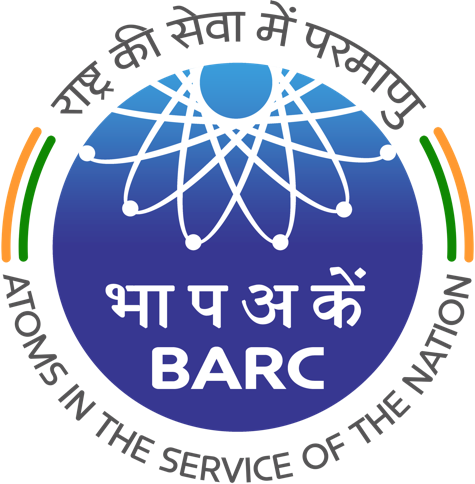Description

Disclaimer: Copyright infringement not intended.
Context
- Senior nuclear scientistVivek Bhasin assumed charge as the director of Bhabha Atomic Research Centre (BARC).
- He succeedsAjit Kumar Mohanty, who was appointed as the Secretary, Department of Atomic Energy and Chairman Atomic Energy Commission earlier this year.
Details
Founding and Purpose
- The Bhabha Atomic Research Centre (BARC) stands as a testament to India's pursuit of excellence in nuclear science and technology.
- It was conceived and founded by Dr. Homi Jehangir Bhabha, a visionary physicist.
- Established in January 1954, its inception marked a crucial milestone in India's nuclear journey.
- The primary goal was to create a multidisciplinary research institution dedicated to advancing nuclear science and technology, a crucial need for India's nuclear program.
Location
- Situated in Trombay, Mumbai, Maharashtra, BARC's sprawling campus encompasses state-of-the-art research facilities, laboratories, and infrastructure necessary to carry out its diverse research activities.
Mandate
- BARC's foundational mandate has been to promote and sustain the peaceful applications of nuclear energy.
- While its history includes significant contributions to India's nuclear weapons program, its core focus has always been on harnessing nuclear science for the betterment of society through research, development, and innovation.
Research Focus Areas
BARC's impressive scope of research spans across numerous scientific domains, making it a true multidisciplinary research center. Some of its key research areas include:
Nuclear Science
- At the heart of its mission, BARC delves deep into nuclear physics, reactor technology, and related fields. This includes theoretical reactor design, computer modeling, risk analysis, and testing of new reactor fuel.
Chemical Engineering
- Chemical engineering plays a vital role in nuclear processes, from fuel development to waste management. BARC's expertise extends to developing and optimizing chemical processes in the nuclear context.
Material Sciences and Metallurgy
- The center conducts groundbreaking research in material sciences and metallurgy to improve the durability and efficiency of nuclear components.
Electronic Instrumentation
- Advanced electronic instrumentation is critical for monitoring and controlling nuclear processes, and BARC is at the forefront of developing cutting-edge instrumentation technologies.
Biology and Medicine
- BARC's research in biology and medicine has led to significant advancements in radiation therapy, cancer treatment, and medical imaging.
Supercomputing
- Supercomputers are indispensable for complex simulations in nuclear research. BARC houses powerful supercomputing infrastructure for various scientific endeavors.
High-energy Physics and Plasma Physics
- Exploration of high-energy physics and plasma physics contributes to a deeper understanding of nuclear phenomena and has applications in fusion research.

Core Responsibilities
Nuclear Power Generation
- BARC's involvement in nuclear power generation is comprehensive. It encompasses reactor design, safety assessments, and performance optimization. The center's contributions extend from the drawing board to operational reactor facilities.
Fuel Development
- Research and development activities at BARC focus on creating and testing new reactor fuels, ensuring efficiency, safety, and sustainability in nuclear power generation.
Waste Management
- Safe disposal of nuclear waste is a paramount concern. BARC pioneers research in waste management strategies, seeking environmentally responsible solutions.
Isotope Applications
- BARC explores industrial applications for isotopes, which have diverse uses in fields such as healthcare, agriculture, and industry.
Radiation Technologies
- Radiation technologies developed at BARC find application in a wide range of sectors, including healthcare, food processing, and environmental monitoring.
Accelerator and Laser Technology
- The center's expertise in accelerator and laser technologies contributes to advanced scientific research and industrial applications.
Electronics and Instrumentation
- BARC's electronics and instrumentation advancements are instrumental in reactor control and monitoring, ensuring the safety and efficiency of nuclear processes.
Material Science
- Material science research at BARC leads to the development of materials with unique properties, critical for nuclear applications.
Environmental Monitoring
- The center actively monitors radiation levels and conducts environmental studies to ensure safety and compliance with regulatory standards.
Research Reactors
- BARC operates a network of research reactors across India. These reactors are used for a wide array of scientific purposes, including isotope production, nuclear research, and neutron-based experiments.
Nuclear Weapons Research
Smiling Buddha Test
- BARC played a pivotal role in India's first successful nuclear test, codenamed "Smiling Buddha" in 1974. The test marked a significant achievement in India's nuclear capabilities and showcased the scientific prowess of BARC.
Pokhran-II Tests
- In 1998, India conducted a series of nuclear tests under the banner of "Pokhran-II," which included both fission and thermonuclear devices. BARC played a central role in these tests, providing technological know-how and confidence for future nuclear endeavors.
Technology Advancement
- These tests not only expanded India's nuclear weapons capabilities but also advanced its ability to produce nuclear fuel for power generation and research.
Nuclear Submarine Program
INS Arihant
- BARC's involvement in India's nuclear submarine program led to the successful design and construction of the nuclear power unit for INS Arihant, India's first nuclear-powered submarine. This achievement marked a significant step towards India's naval nuclear capabilities.
International Collaborations
- BARC collaborates with prestigious national and international scientific projects, fostering knowledge exchange and joint research efforts. These collaborations include participation in projects such as CERN (Large Hadron Collider), India-based Neutrino Observatory (INO), and ITER (nuclear fusion research).
Recent Developments and Expansions
New Campuses
- BARC has expanded its footprint with planned facilities in Atchutapuram, near Visakhapatnam in Andhra Pradesh, and Challakere in Chitradurga district, Karnataka. These expansions aim to meet the growing demands for research and development in the nuclear sector.
Special Research Reactor
- A notable project in progress is the construction of a Special Mineral Enrichment Facility in Atchutapuram, which focuses on uranium fuel enrichment. This facility supports India's nuclear submarine program and produces high specific activity radioisotopes for extensive research applications.

Conclusion
Bhabha Atomic Research Centre (BARC) is a pioneering institution that epitomizes India's commitment to nuclear science and technology. Its multidisciplinary research, historical achievements, and ongoing contributions to both peaceful applications and national security make it an invaluable asset to India and the global scientific community.
|
PRACTICE QUESTION
Q What was the codename of India's first successful nuclear test conducted with the assistance of BARC?
a) Operation Desert Storm
b) Operation Smiling Buddha
c) Operation Greenpeace
d) Operation Thunderbolt
Answer: b)
|
https://energy.economictimes.indiatimes.com/news/power/vivek-bhasin-assumes-charge-as-barc-director/10370462











